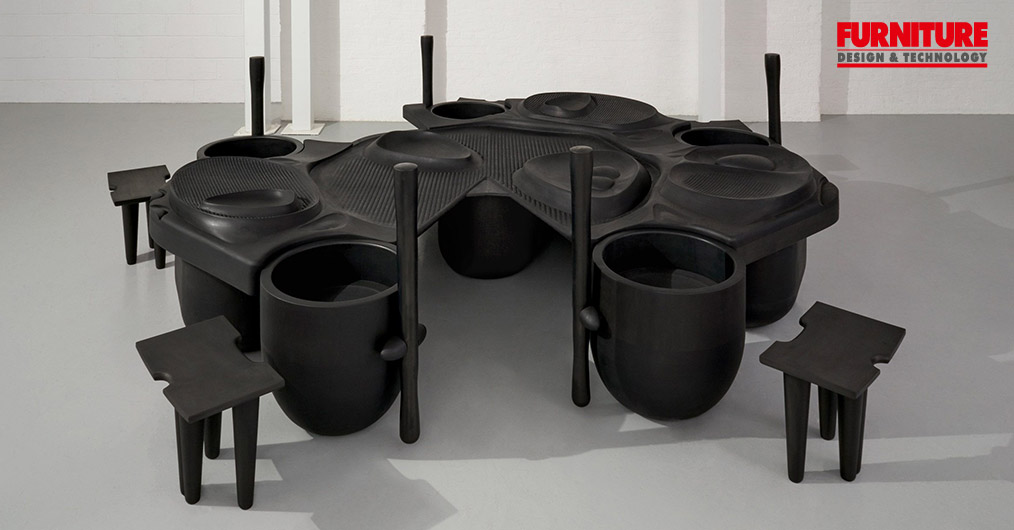
The Communion table, conceived by designer Giles Tettey Nartey, intertwines traditional West African culinary practices with contemporary design sensibilities. Crafted from American maple, this monumental piece of furniture seamlessly blends functionality with artistry, featuring integrated pestles, mortars and bowls designed specifically for the preparation of fufu, a staple dish in West Africa. Commissioned by the American Hardwood Export Council, it was recently showcased at Milan Design Week. Know more about it on FURNITURE DESIGN AND TECHNOLOGY (FDT).
Inspired by his upbringing in both South London and Ghana, Tettey Nartey envisioned the Communion table not just as a utilitarian object but as a symbolic representation of the social and cultural significance inherent in the act of making fufu. For him, the rhythmic process of pounding cassava and plantain into a dough, accompanied by the harmonious dialogue between individuals engaged in the preparation, evokes a sense of beauty and communal connection. The design of the table reflects Tettey Nartey’s deep respect for West African traditions and his desire to elevate them to a global audience.
Each workstation surrounding the central serving table is a self-contained unit, complete with oversized pestles and mortars, as well as three-legged stools inspired by those used by the Ashanti people of Ghana. The maple wood is meticulously carved to include bowls and indentations for holding ingredients and water, facilitating the collaborative process of fufu preparation. Collaborating with London furniture maker Jan Hendzel Studio, Tettey Nartey brought his vision to life, resulting in a sprawling setup measuring nearly 4m in diameter.
The project, born from his doctoral research on Ghanaian domestic rituals from a diasporic perspective, seeks to reimagine everyday acts like making food as transcendent experiences that showcase unity and spiritual connection. The symbolism embedded within the design extends to the black stain coating the furniture, reminiscent of the Ashanti tradition of blackening stools to mourn the passing of a loved one.
Image credit: Giles Tettey Nartey
Furniture Design India and the magazine FURNITURE DESIGN & TECHNOLOGY (FDT magazine) are from the trusted 22-year-old media house of SURFACES REPORTER and PLY REPORTER.
FDT is a B2B monthly bilingual magazine from India that shares the pulse of the furniture business in India and connects the manufacturers, OEMS, product designers, architects, showrooms, designers and dealers.
Read More© 2026 Furniture Design and Technologies.. All Rights Reserved. Developed by eyeQ Advertising